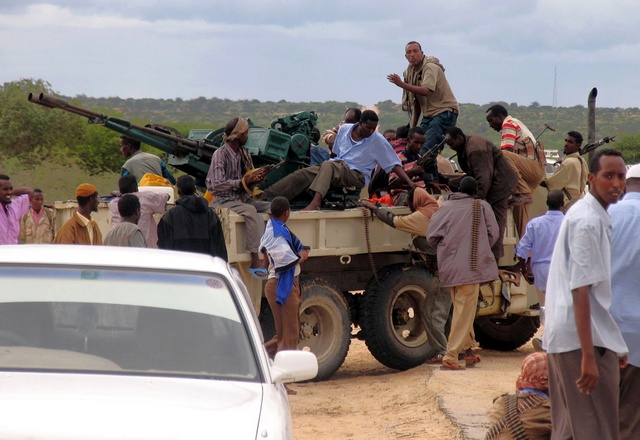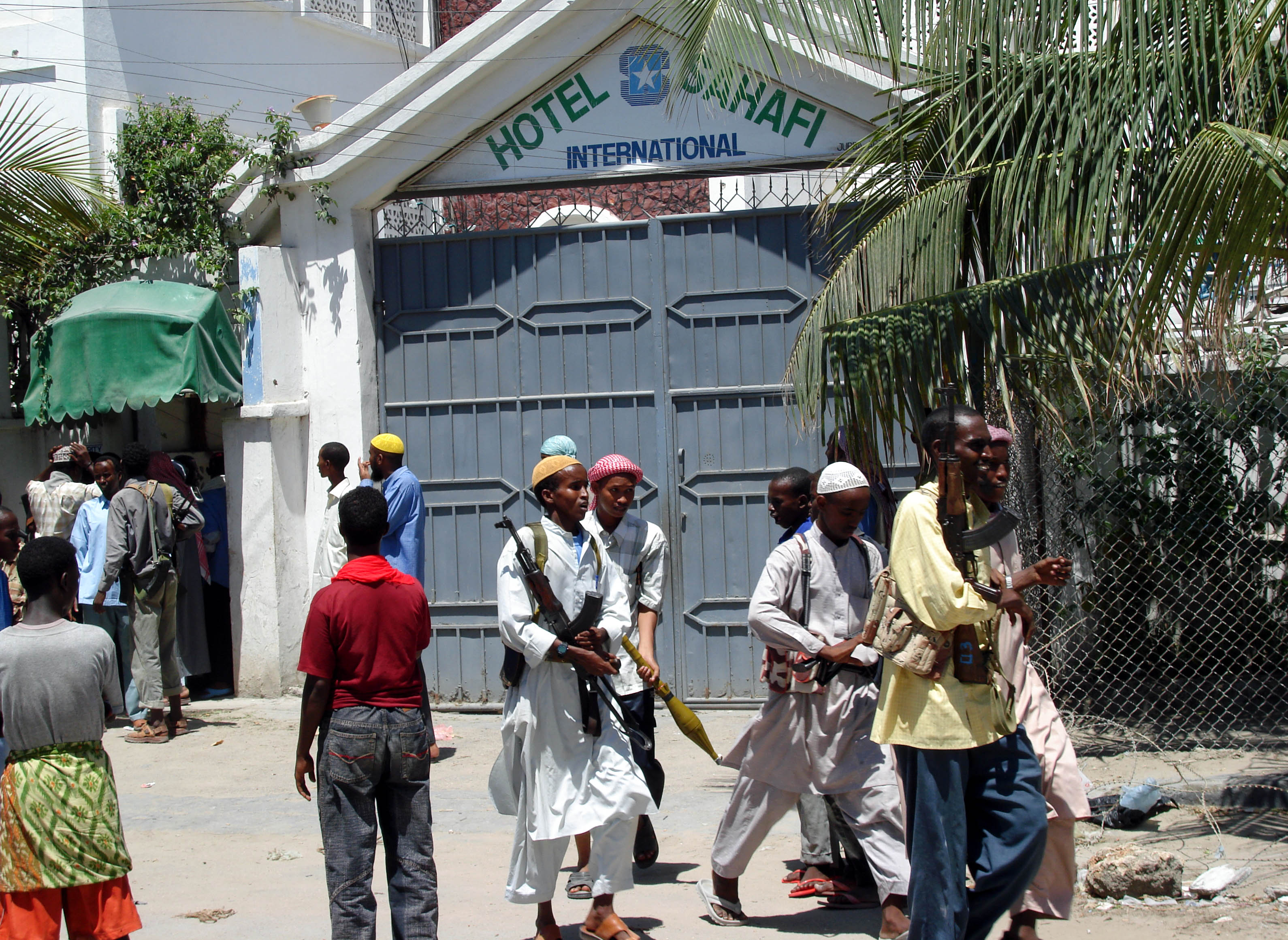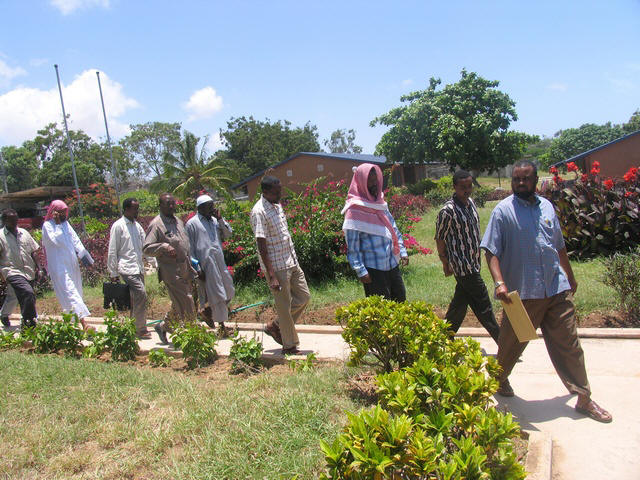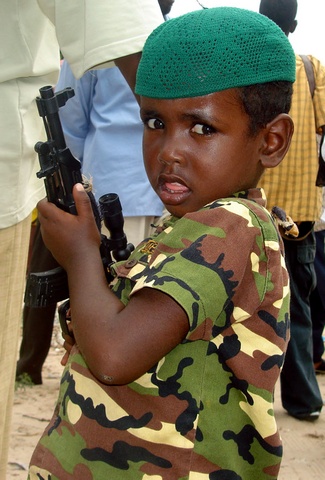|
Zooming in Extremists |
|
EXTREMISTS EMERGE III
Canadian among Islamists: 'Key player' is deputy to hardliner in Somalia
Stewart Bell National Post October19, 2006
TORONTO - A Somali-Canadian businessman is a "key player" in an emerging armed Islamic group that some describe as Africa's Taliban, sources have told the National Post.
Former Toronto resident Abdullahi Ali Afrah, who goes by the nickname Aspro, holds a senior position in the consultative council of Somalia's hardline Islamic Courts Union.
As second deputy chairman, he reports to Sheikh Hassan Dahir Aweys, who is on Canadian and United Nations lists of designated terrorists and was a founding member of the outlawed terror group Al-Ittihad Al-Islam (AIAI).
Mr. Ali Afrah is one of several members of the Toronto and Ottawa Somali-Canadian communities who have reportedly returned to their homeland and joined the Islamic Courts, either in leadership and support roles or as fighters in armed militias.
Backed by its militias, the Islamic Courts have captured Somalia's capital, Mogadishu, and much of the south from clan warlords since June, replacing lawlessness with strict Taliban-like rule.
The Department of Foreign Affairs is watching the development, but an official said Ottawa was unaware a Canadian had been appointed to a senior position in the Islamic Courts.
"We're monitoring the situation in Somalia closely," said Andre Lemay, press secretary to Peter MacKay, the Minister of Foreign Affairs.
"We are aware that some Canadians with dual Somali citizenship are working and doing business in Somalia, including in affiliation with the transitional federal government, the courts and NGOs."
But he said "the Canadian government has no details of any Canadian being number two to the leader of the Islamic Courts Union."
A native of Mogadishu, Mr. Ali Afrah moved to Toronto in the 1980s and became a Canadian citizen.
According to community sources, he earned his nickname by selling aspirin, "aspro" in Italian, and later ran the Canadian branch of an international money-transfer company.
"He was one of the colleagues working here very hard for his family," said Aden Esse, a Somali-Canadian community leader.
"At that time there were not those names al-Qaeda and Taliban; they were not even in the picture at the time. He was just a typical Somali-Canadian at the time that I knew him."
Mr. Ali Afrah opened the Canadian branch of Al-Barakaat, which helped Somali-Canadians transfer money back to relatives in their homeland, Mr. Esse said.
Two months after the 9/11 attacks, Al-Barakaat offices were shut down worldwide at U.S. urging due to alleged ties to al-Qaeda, but the Americans have since backtracked and only the Barakaat offices in Somalia remain on the UN and Canadian lists of terrorist entities.
Mr. Ali Afrah moved back to Somalia sometime in the late 1990s, Mr. Esse said. Sources who knew him in Somalia said he managed the Al-Barakaat office in Mogadishu.
"I met him a number of times that he came back, a number of years back," Mr. Esse said.
"I think he was more a business person than any other thing.
"I don't know when he went back to Somalia, but he was not an Islamic person even at the time I knew him.... Is he there [as] an administrative person or one of the religious leaders? I don't know."
In testimony before the House subcommittee on Africa in June, Ted Dagne of the Congressional Research Service called Mr. Ali Afrah one of the "key players in the Islamic Courts Union" and said he held a "key position."
Somalia has had no central government since the fall of Siad Barre in 1991. Warlords have ruled ever since, but in recent months militias loyal to courts that enforce shariah Islamic law have taken control of the south.
The Islamic Courts Union has won popular support for its efforts to restore order to Somalia, but international observers are concerned it has been imposing rigid social restrictions based on extremist interpretations of Islam.
Watching World Cup soccer has been banned, for example, while public executions have occurred as recently as last week. The UN has ordered its staff out of Mogadishu, citing threats from the Islamic Courts.
There are also allegations of ties to al-Qaeda. The youth militia of the Islamic Courts, the Shabbab, is headed by Aden Hashi Farah Ayro, who was allegedly trained by al-Qaeda in Afghanistan. Several Somali-Canadians are believe to be serving in the militia, the Post revealed on the weekend.
The Canadian presence in the "African Taliban" has raised alarms in Ottawa, which fears a repeat of the Afghanistan experience. After participating in the 1980s Afghanistan war, such Canadian extremists as Ahmed Khadr escalated to terrorism and returned to Canada to help radicalize a new generation.
sbell@nationalpost.com - - - Al-Ittihad Al-Islam (AIAI) "The AIAI is an internationally established Islamist organization that engages in terrorism in Somalia and Ethiopia. Guided by the goal of creating an Islamist theocracy based on Islamic law, the AIAI's objective is the unification of all Muslims in the region under the banner of creating a 'greater Somalia.' To achieve this goal, the AIAI is committed to using indiscriminate terror tactics, including the targeting of foreigners and political leaders of foreign states. The AIAI has ties with states that are known to support terrorism and is believed to have operational links with al-Qaeda."
Source: "Listed Entities,"
Public Safety and Emergency Preparedness Canada.
© 2006 National Post . All Rights Reserved.
Somali-Canadians join African 'Taliban': Some return home to serve in hardline Islamic militia
Stewart Bell The National Post, Toronto 14 October 2006
TORONTO - A number of young Somali-Canadians have returned to their homeland and joined a hardline Islamic militia that some call Africa's Taliban, sources have told the National Post.
The Shabbab, a Somali youth militia whose leader is believed to have been trained by al-Qaeda in Afghanistan, includes several Canadians in its ranks, the sources said.
Somali-Canadians are also said to be serving in other militias, as well as in senior positions in Somalia's interim government and its opponent, the Islamic Courts Union.
The Canadians are described as refugees who moved to Toronto and Ottawa in the 1990s, some of them university students, who have returned to Somalia over the past two to three years.
"Some of the militia members of the Shabbab are young diaspora members who returned to Somalia from Canada," a leading Somalia expert, who asked not to be identified, told the Post this week.
"The Somalis who are here, and others who have recently been in, confirm that quite a few of the Shabbab are in fact diaspora members, not just from Canada but quite a few have come back from places like Pakistan."
Some analysts believe Somalia is on the verge of becoming the next big destination for young extremist Muslims who want to participate in armed jihad.
The participation of a significant number of Canadians in the conflict has raised alarms in Ottawa, which fears Somali militia members will escalate to terrorism or return to Canada and radicalize a new wave of extremists.
It was just such a scenario that unfolded after the Soviet War in Afghanistan, when foreign volunteers became the first generation of al-Qaeda terrorists. Others returned to the West and began recruiting others into terrorism.
"I think that's the real concern is that there's going to be blowback after their time is done in Somalia," the expert said in an interview. "Its very troubling."
Somalia is one of the world's most lawless nations. A thoroughly failed state, it has had no central government since the fall of Siad Barre in 1991. Warlords have ruled ever since but in recent months militias loyal to courts that enforce shariah Islamic law have taken control of the south.
Fighting under the banner of the Islamic Courts Union, the militias have gained popular support for their efforts to restore order, but they are also controversial because they are so similar to the Taliban, imposing rigid social restrictions such as a ban on watching World Cup soccer. Public executions have occurred as recently as yesterday.
The Shabbab, which consists of 300 to 400 young fighters of various nationalities, is a particular concern. It is headed by Aden Hashi Farah Ayro, who was allegedly trained by al-Qaeda and is blamed for the killings of international aid workers and journalists.
In his mid-30s with a turban and goatee, Ayro came out of the shadows only last month, appearing before his militias after they had captured the strategic seaport of Kismayo. Surrounded by bodyguards who looked Arab and Central Asian, he reportedly said that, "Among our militia will be Somalis and foreigners."
"The Shabbab are very powerful," the expert said. "They're the shock troops, they are the commissars. They are hardliners, they are true believers. I think the closest thing you could equate them to is the mujahedin," said the expert, using the term for Islamic holy warriors.
While the Shabbab serves as the military youth wing of the Islamic Courts, it is uncertain whether the courts and their leaders exert any real control over the jihadist militia.
"What that means is you've got some kids who may or may not be under the control of political leaders and that's the big question, we simply don't have an answer for whether they are answering to anyone but themselves."
Adam Esse, a leading member of Toronto's large Somali community, said Somali-Canadians have long been returning to their homeland for family and business reasons.
"It could be Canada is not good for everybody," he said.
He said he knows of one Canadian who now holds a senior position in the Islamic Courts, but he was unaware of any Canadians who had joined the militias.
"Could be but I haven't heard," he said. "I heard only one person.... I know him personally but he left here a long time ago. Recently I heard that he was one of the leaders."
During a visit to Somalia last year, Mr. Esse said he learned that 11 ministers and deputies in the interim government were Canadians. He said it was also possible Somali-Canadians had joined the militias. "I'm not denying, what I'm saying is I haven't heard of it."
Canada is home to tens of thousands of citizens of Somali origin, mostly refugees who migrated in the 1990s. The majority live in Toronto but Ottawa also has a significant Somali-Canadian community.
While Somalis are generally considered moderates, there have been indications of radicalization within the community, including the arrest last summer of two Somali-Canadians accused of supplying weapons to an alleged Toronto-based terror group inspired by al-Qaeda.
Mohammed Abdullah Warsame, who was born in Mogadishu and emigrated to Canada in 1989, is accused of training at two terrorist camps in Afghanistan. An FBI affidavit says the Toronto resident taught English at the camps and once met Osama bin Laden, whom he found "inspirational." Al-Qaeda paid for his return to Toronto in April 2001, the FBI says. He was arrested in Minneapolis in 2003.
Like the Taliban, the Islamic Courts have been accused of links to terrorism. Islamic Courts leader Sheikh Hassan Dahir Aweys is on the Canadian and United Nations lists of restricted terrorists, and has been accused of harboring terrorists wanted for attacks such as the bombings of two American embassies in 1998.
The UN said Thursday it was pulling its staff out of areas controlled by the Islamic Courts, citing written death threats. On Sept. 17, an Italian nun was murdered in Mogadishu, following controversial comments made by the Pope. A Swedish journalist was also recently murdered. A suicide bomber attempted to assassinate the president of the interim government, Abdullah Yusuf, last month.
"The courts are associated with international terrorist groups like al-Qaeda," the prime minister of Somalia's transitional government, Ali Mohamed Gedi, said in a statement last month.
"The Islamic courts brought weapons, other explosives and foreign fighters to Somalia. Wherever they go they deny people the right to freedom of speech, rights of association and entertainment."
Hassan Shire Sheikh, Uganda-based coordinator of the African Human Rights Defenders Project at York University, said it was difficult to come up with "meaningful information" about the presence of Canadians in the executive and military wing of the Islamic Courts.
"According to a little information available to me ... there are a good number of Somalis with various Western naturalized citizenships within the rank and the file of the ICU, and [that] may warrant more systematic investigations."
A source in Mogadishu said there were Canadians in the Islamic Courts movement. "Some of the ICU members are mixed, Somali-American, Somali-Canadian. Primarily they are in the business sector," he said.
SOMALIA TIMELINE
1960: British and Italian parts of Somalia merge and gain independence.
1969: Muhammad Siad Barre comes to power in a coup.
1974: Widespread drought and starvation.
1991: Barre is ousted, warlords take over.
1992: U.S. Marines deploy to Mogadishu, paving the way for a UN peacekeeping force that includes Canadians.
1995: UN Peacekeepers leave.
1990s: Tens of thousands of Somalis take refuge in Canada.
2000: New government chosen.
2001: Another drought hits.
2004: A Transitional Government is chosen.
June 2006: Militias loyal to the Islamic Courts Union take control of Mogadishu and the south. A stand-off between the Transitional Government and Islamic Courts ensues.
September 2006: Suicide bomber tries to assassinate Interim President.
October 2006: Islamic Courts declare holy war against Ethiopia. UN orders staff out of areas held by Islamic Courts, citing death threats.
Ran with fact box "Somalia" which has been appended to the story.
© 2006 National Post . All Rights Reserved.
|
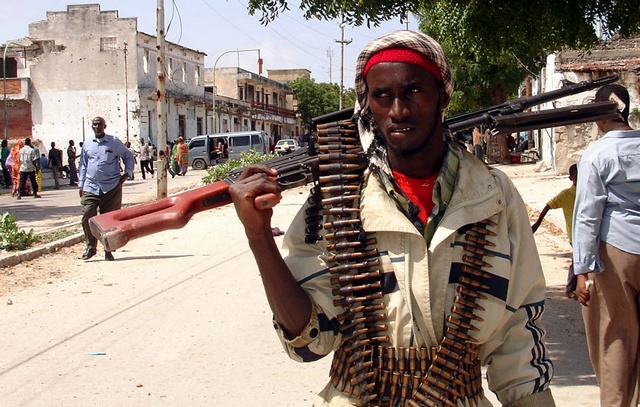
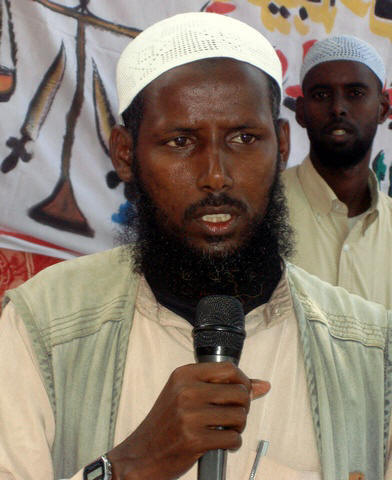
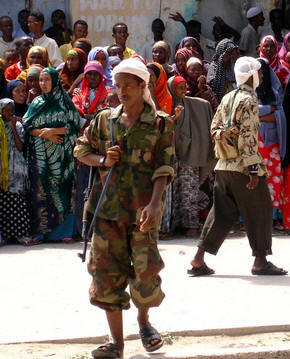
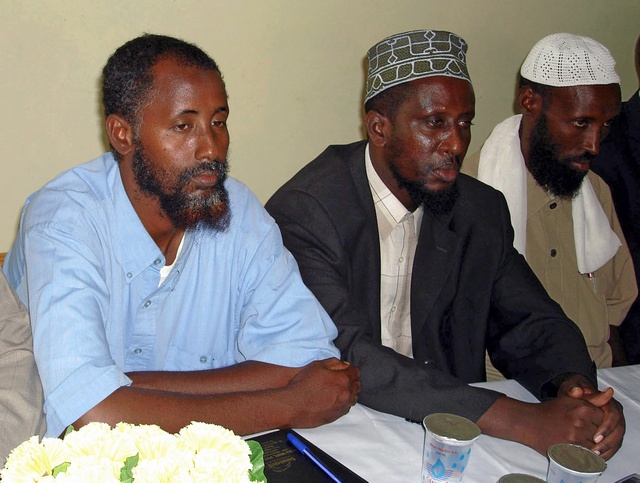
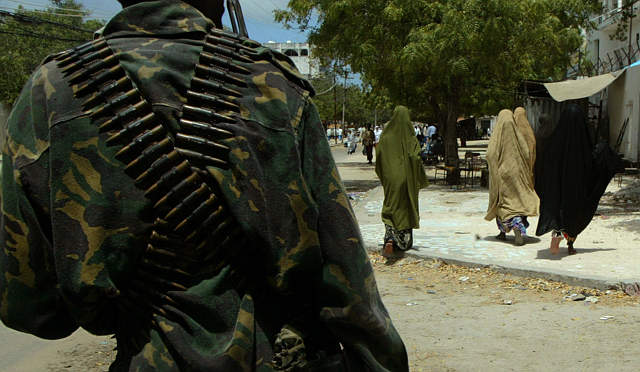
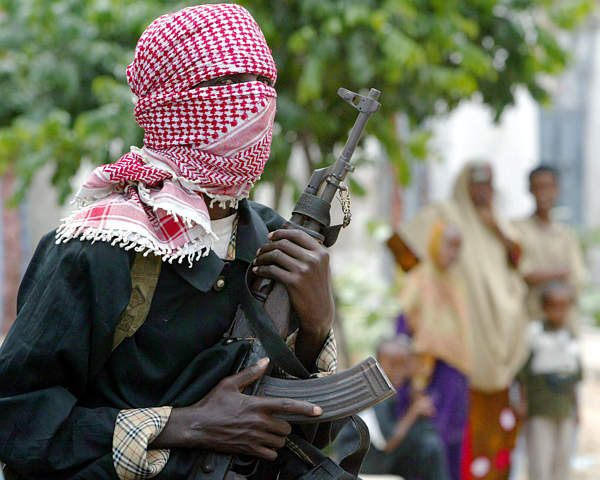
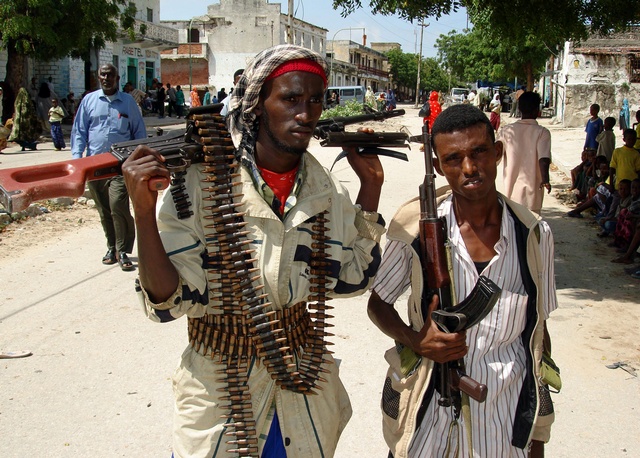
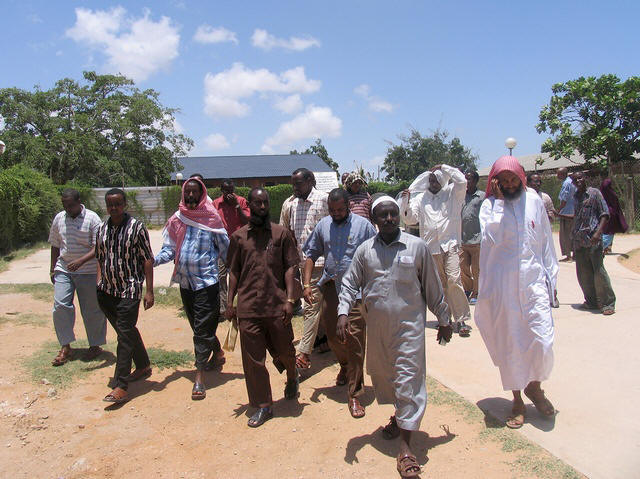
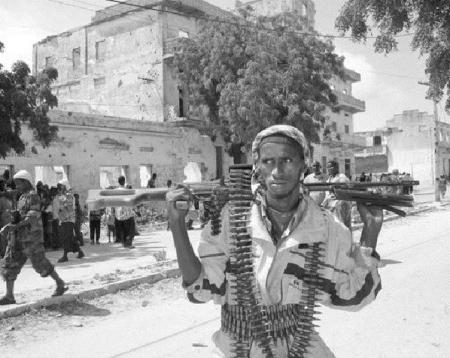
.jpg)
